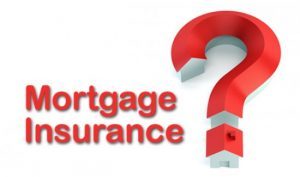
Ask any mortgage broker and they can tell you that there are a handful of misconceptions that the public has about working with a mortgage broker. From questioning their credentials (we all are regulated and licensed with in our own province, and are constantly re-educating ourselves) to assuming that the broker does not have access to the same rate as the banks (we do in fact—plus access to even more lending options) mortgage brokers have heard it all!
With the recent changes to the B-20 guidelines taking full effect as of January 1, 2018 the mortgage landscape is changing and we firmly believe in keeping our clients educated and informed. With these changes, there have been a number of misconceptions that have come to light regarding mortgage professionals and their “limitations” and we felt it was time to address them:
Myth 1: Independent Broker’s don’t have access to the rates the banks do.
Fact: Not true. Brokers have access to MORE rates and lenders than the bank. The bank brokers only have access to their rates-no other ones. A mortgage professional has access to:
• Tier 1 banks in Canada
• Credit Unions
• Monoline Lenders
• Alternative Lenders
• Private Lenders
This extensive network of lender options allows brokers to ensure that you are not only getting the sharpest rate, but that the mortgage product is also aligned with the client’s needs.
Myth 2: The consumer has to negotiate a rate with a lender directly.
Fact: Not true at all! Your mortgage professional will shop the market to find the best overall cost of borrowing for the client. Broker’s will look at all angles of the product to ensure that the client is getting one that will suit their unique and specific needs. Not once will the client be expected to shop their mortgage around or to speak to the lender. This is different from the bank where you are limited to only their rates and are left to negotiate with the bank’s broker—who is paid by the bank! We don’t know about you, but we would much rather have a broker negotiate on our behalf. Plus, they are FREE to use (see myth #6)
Myth 3: A Broker’s goal is to move the mortgage on each renewal.
Fact: A Mortgage Broker’s goal is to present multiple options to consumers so they can secure the optimal product for their specific and unique needs. This entails the broker looking at more than just the rate. A broker will look at:
• Prepayment options
• Costs of borrowing
• Portability
• Penalty to break
• Mortgage charges
And more. If the Broker determines that the current lender is the most ideal for their client at the time of renewal, then they will advise them to remain with that lender. The end goal of renewal is simple: provide clients the best ongoing, current advice at the time of origination and at the time of renewal
Myth 4: The broker receives a trailer fee if the client remains with the same lender at renewal.
Fact: This is on a case-to-case basis. At times, there is a small fee given to the broker if a client opts to renew with their current lender. This allows for accountability between the lender, broker, and customer in most cases. However, this is not always the case and the details of each renewal will vary.
Myth 5: If a Broker moves a mortgage to a new lender upon time of renewal then the full mortgage commission is received by the broker, allowing the broker to obtain “passive income” by constantly switching clients over.
Fact: Let’s clarify: If a client chooses to move their mortgage at renewal after a broker presents them with the best options, then it is in fact a new deal. By being a new deal, this means that the broker has all the work associated with any new file at that time. It is the equivalent of a brand-new mortgage and the broker will have to do the correct steps and work associated with it.
A second point of clarification-although the broker will earn income on this switch, the income (in most cases) is paid by the financial institution receiving the mortgage, NOT the client.
Myth 6: It costs a client more to renew with a mortgage broker.
Fact: Completely false. Clients SAVE MONEY when they work with a mortgage broker at . A broker has access to a variety of lenders and can offer discounts that the bank can’t. Additionally, most mortgage brokers offer continuous advice and information to their clients. Working with a broker is not a “one and done” deal as it is a broker’s goal to keep their clients informed, educated, and well-versed as to what is happening in the industry and how it will affect them. When you work with a broker instead of the bank, you not only get the best mortgage for you, but you also have access to a wealth of industry knowledge continuously.
Mortgage Brokers are a dedicated group of individuals who work directly for the client, not the lenders or the bank. Brokers are problem-solvers, advisors and honourable individuals. We work hard to give our clients the best that we can in an industry that constantly is evolving and changing.
We encourage you to reach out to your local Dominion Lending Centres mortgage professional if you have any misconceptions or questions about working with a broker-we are happy to answer them and help you with your mortgage, your renewal, and everything and anything in between.
Contact me for your best mortgage options 705.669.7798 or trina@ndlc.ca
#trinamortgages #mortgages #ndlc #freedomofchoice
#bestmortgageforme #executive #firstimehomebuyer
If you found this information valuable, I only ask that you share with your friends and family.
Copyright DLC







